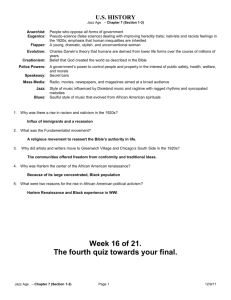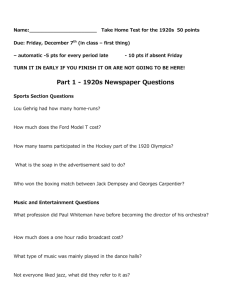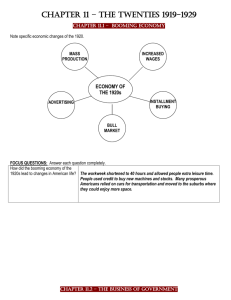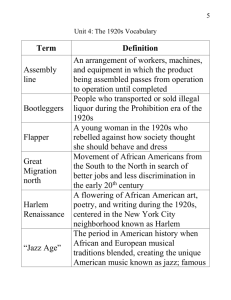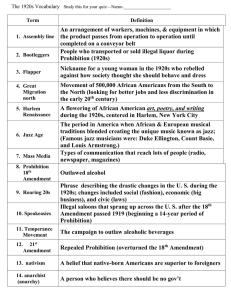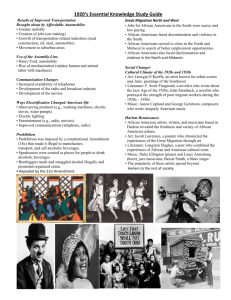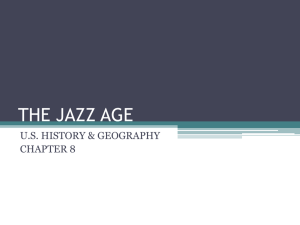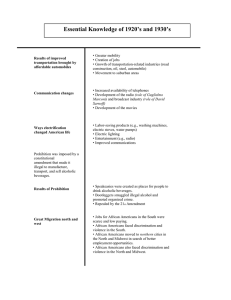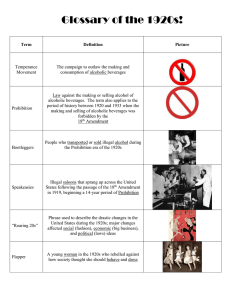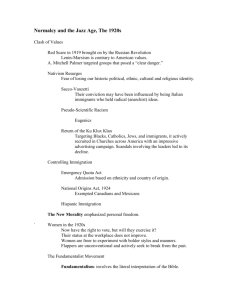Ch 20 Test Review
advertisement
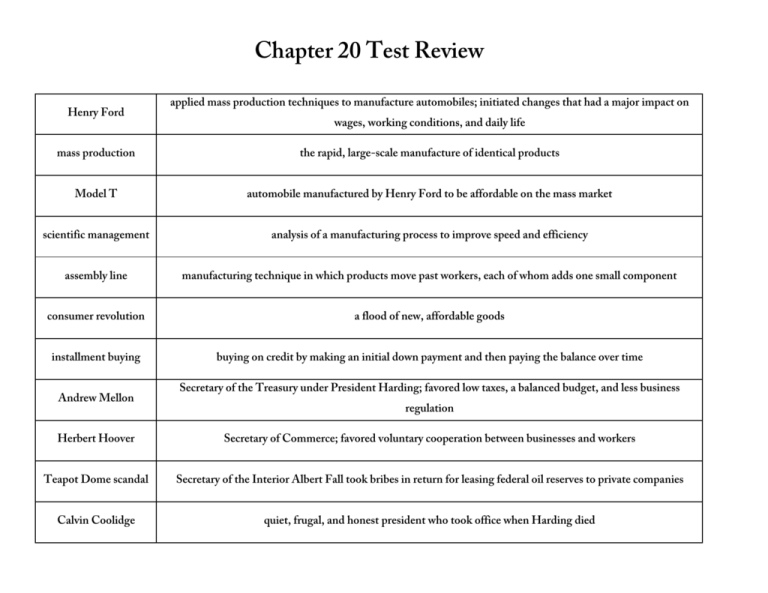
Chapter 20 Test Review Henry Ford applied mass production techniques to manufacture automobiles; initiated changes that had a major impact on wages, working conditions, and daily life mass production the rapid, large-scale manufacture of identical products Model T automobile manufactured by Henry Ford to be affordable on the mass market scientific management analysis of a manufacturing process to improve speed and efficiency assembly line manufacturing technique in which products move past workers, each of whom adds one small component consumer revolution a flood of new, affordable goods installment buying buying on credit by making an initial down payment and then paying the balance over time Andrew Mellon Secretary of the Treasury under President Harding; favored low taxes, a balanced budget, and less business regulation Herbert Hoover Secretary of Commerce; favored voluntary cooperation between businesses and workers Teapot Dome scandal Secretary of the Interior Albert Fall took bribes in return for leasing federal oil reserves to private companies Calvin Coolidge quiet, frugal, and honest president who took office when Harding died Washington Naval Disarmament Conference Kellogg-Briand Pact Dawes Plan meeting in which nations agreed to limit construction of large warships agreement to outlaw war as an instrument of national policy loan program to help Germany make reparations to England and France so that those countries could repay wartime loans to U.S. modernism trend that emphasized science and secular values over traditional religious ideas fundamentalism belief that emphasizes the Bible as literal truth Scopes Trial 1925 “Monkey Trial,” which challenged a law against teaching Darwin’s theory of evolution in Tennessee public schools Clarence Darrow defense attorney in the Scopes Trial quota system a formula to determine how many immigrants could enter the U.S. annually from a given country Ku Klux Klan a group violently opposed to immigrants, Catholics, Jews, and African Americans Prohibition a ban on alcohol Eighteenth Amendment a 1919 Constitutional amendment that established Prohibition Charlie Chaplin popular silent film star The Jazz Singer the first talking motion picture Babe Ruth baseball star known as the “Sultan of Swat” and the “Bambino” Charles Lindbergh the first person to fly solo and non-stop across the Atlantic Ocean flapper a young woman of the 1920s who rejected traditional values and dress Sigmund Freud psychologist who suggested that people are driven by subconscious desires “Lost Generation” writers who rejected Victorian values after World War I and searched for new truths F. Scott Fitzgerald author of The Great Gatsby and other novels that questioned the idea of the American dream Ernest Hemingway author of a Farewell to Arms who developed a new writing style Marcus Garvey founder of the Universal Negro Improvement Association and the “Back to Africa” movement who promoted black pride jazz American musical art form based on improvisation that came to represent the Roaring Twenties Louis Armstrong trumpet player who influenced the development of jazz Bessie Smith jazz singer known as the “Empress of the Blues” Harlem Renaissance the flowering of African American arts and literature in 1920s New York Claude McKay Harlem Renaissance writer who showed the struggles of ordinary African Americans Langston Hughes prolific writer who celebrated African American culture and life Zora Neale Hurston folklorist and author of Their Eyes Were Watching God
